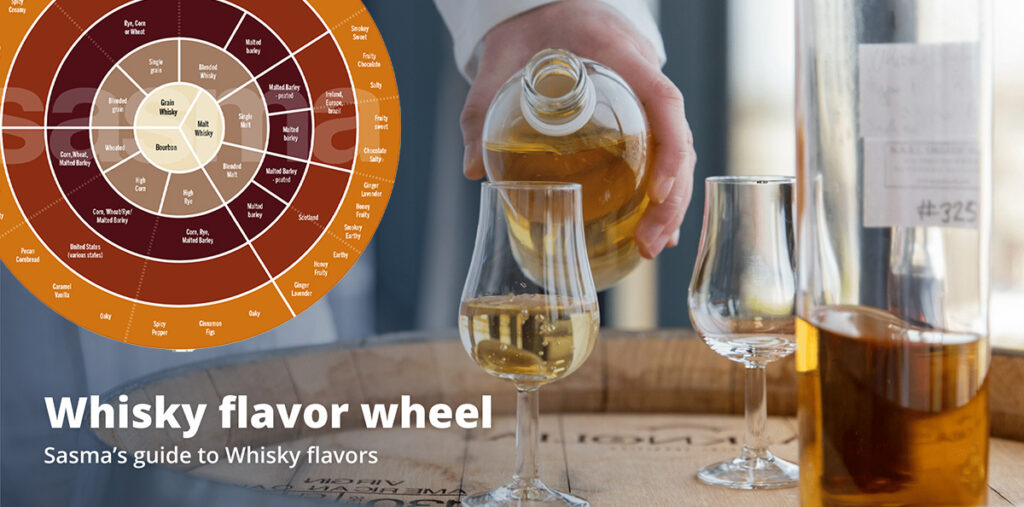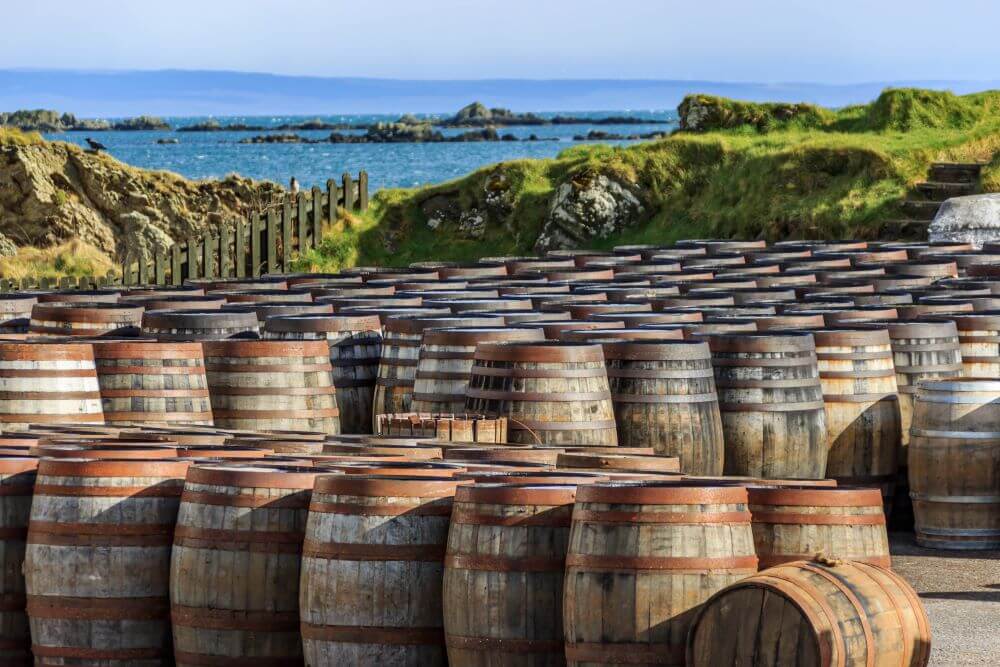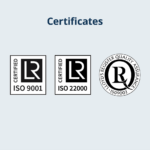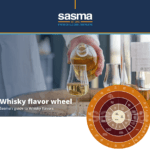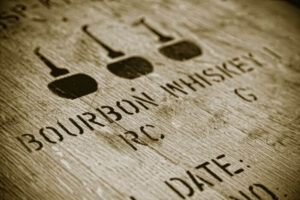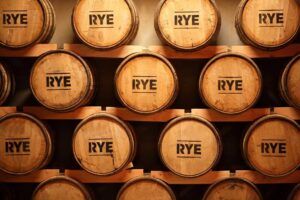What is Scotch Whisky?
Scotch whisky must be made in Scotland, birthplace of scotch. Malt or grain are the distilling ingredients that lead to two different kinds of spirits, namely grain whisky and malt whisky.
Scotch Whisky in Bulk
We supply scotch whisky in 1000 litre IBCs or 25,000 litre ISO tanks. We are able to supply your company in Europe but also around the globe.
What does Scotch taste like?
Good Whisky from Scotland is hard to find, especially with the many different variations of the drink. Understanding the characteristics of blended whisky and what the name of a scotch really means are vital in finding the ideal spirit.
Single malt scotch is distilled at one single distillery in copper stills. A more smoky flavour is attributed to single malts thanks to peated barley. The bottler is only allowed to label this scotch whisky as single malt if it is actually bottled in Scotland.
Blended whisky, by contrast, consists of a mixture of different single malts and grain whiskies; all from Scotland. The grain whisky is produced in column stills at larger distilleries and then is blended with the malt whisky, hence the word blended in the name. This mixture gives blended whisky a sweeter and particularly lighter flavour than the malt whisky on its own.
Are you ready to find a whisky that makes your customers say “Oh my Scotch”? Have a look at our scotch blended malt, heavily peated, blended, and grain whisky assortment to find the right scotch whisky for your business.
Why Choose Sasma as your bulk Scotch Supplier?
Sasma combines deep industry expertise with global reach to deliver a full range of Scotch whisky – from bulk blends to premium single malts – tailored to your needs. With ISO-certified quality, flexible packaging, and responsive logistics, we offer reliable supply, full compliance, and a customer-first approach built on decades of trust.
Grain whisky is made from a mixture of grains while malt whisky is made solely from malted barley. Grain whisky tends to have a lighter and sweeter flavor, while malt whisky has a more robust and complex flavor profile. Grain whisky is commonly used for blending while malt whisky is often enjoyed on its own.
Blended whisky typically has a lighter and sweeter flavor compared to malt whisky. Malt whisky, especially single malts, tends to have a more robust and complex flavor profile with a range of notes including malt, fruits, spices, and sometimes a smoky character.
BEVERAGE INDUSTRY
Perfect as a base for producing alcoholic beverages such as hard seltzers, flavored malt beverages, and other fermented drinks.
Advantages of using sugar brew include:
- Naturally Gluten Free
- Low Calorie
- Colorless
- Neutral Flavor
- Cost effective – similar to malt bases.
Purity: High purity level ensuring optimal performance.
Packaging: Available in various packaging options to meet your specific needs.
Availability: Consistent and reliable supply with global distribution capabilities.
What are the main differences between grain whisky and malt whisky?
Grain whisky is made from a mixture of grains while malt whisky is made solely from malted barley. Grain whisky tends to have a lighter and sweeter flavor, while malt whisky has a more robust and complex flavor profile. Grain whisky is commonly used for blending while malt whisky is often enjoyed on its own.
How does the flavor of blended whisky differ from malt whisky?
Blended whisky typically has a lighter and sweeter flavor compared to malt whisky. Malt whisky, especially single malts, tends to have a more robust and complex flavor profile with a range of notes including malt, fruits, spices, and sometimes a smoky character.
What types of Scotch whisky does Sasma supply in bulk?
We offer a full range of Scotch whisky in bulk—including blended Scotch, single malts, and grain whisky—sourced from leading Scottish distilleries. Our Scotch can be tailored by age statement, cask type (e.g., ex-bourbon, sherry), and strength, depending on your formulation or brand needs.
Can I import Scotch whisky from Sasma to my country?
Yes. Sasma ships Scotch whisky globally and handles all necessary export documentation and compliance. Whether you’re importing to the EU, U.S., Asia, or emerging markets, our logistics team ensures your shipment meets all regulatory standards, including labeling and customs requirements.
Is Sasma’s Scotch whisky certified and traceable?
Absolutely. All our Scotch whisky is fully traceable back to the distillery and comes with the necessary quality certifications. We work with distillers that comply with Scotch Whisky Association standards, and can provide supporting documents such as Certificates of Analysis (CoA), Safety Data Sheets (SDS), and origin certificates upon request.
Additional Information
Scotch Blended Malt Whiskies:
- Scotch Blended Malt Whisky 15YO
- Scotch Blended Malt Whisky 12YO
- Scotch Blended Malt Whisky 8YO
- Scotch Blended Malt Whisky 7YO
- Scotch Blended Malt Whisky 5YO
- Scotch Blended Malt Whisky 3YO
Scotch blended malt heavily peated:
- Scotch Blended Malt Whisky 8YO (heavily peated)
- Scotch Blended Malt Whisky 7YO (heavily peated)
- Scotch Blended Malt Whisky 5YO (heavily peated)
Scotch Blended Whiskies:
- Scotch Blended Whisky 3YO until 15YO
Scotch Grain Whisky:
- Scotch Grain Whisky 3YO until 15YO
ISO 9001, ISO 22000, Lloyd’s Register
Step into the world of Whisky exploration with Sasma’s Whisky Flavor Wheel
